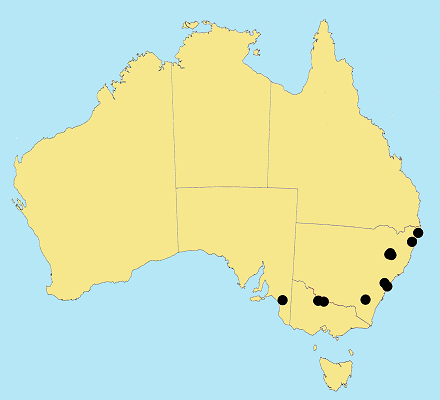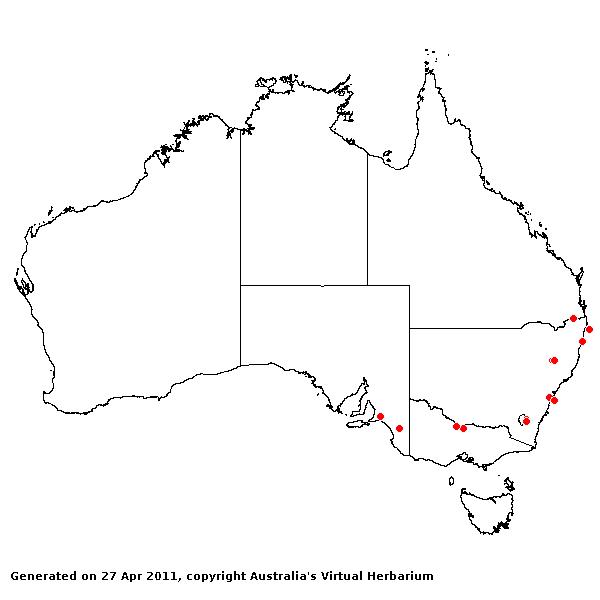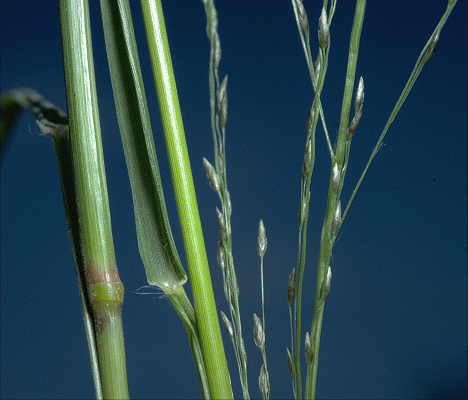Eragrostis tef* (Zucc.) Trotter. Boll. Soc. Bot. Ital., 1918, 62 (1918).
Classification. (GPWG 2001) : Subfamily Chloridoideae. Cynodonteae.
Basionym and/or
Replacement Name: Poa tef
Zucc., Diss. Ditef (1775.).
Type of Basionym or
Protologue Information: HT: Anon., Cult. at Florence
from seed collected in Ethiopia
by Bruce (FI).
Key references
(books and floras): [2002] D.Sharp & B.K.Simon, AusGrass, Grasses of
Australia, [2006] J.Jessop, G.R.M.Dashorst, F.M.James, Grasses of South
Australia (382).
Illustrations:
[2006] J.Jessop, G.R.M.Dashorst, F.M.James, Grasses of South Australia (382, fig. 316).
Habit. Annual.
Culms erect, 17–90 cm tall. Ligule a fringe of hairs, 0.5–0.8 mm long.
Leaf-blades involute, 10–30 cm long, 2–4 mm wide.
Inflorescence.
Inflorescence compound, a panicle. Panicle lanceolate or ovate, 10–40 cm long.
Spikelets.
Spikelets pedicelled. Fertile spikelets many flowered, with at least 2 fertile
florets (4–15), comprising 4–15 fertile floret(s), with diminished florets at
the apex, lanceolate or oblong, laterally compressed, 3–9 mm long.
Glumes. Glumes
similar. Lower glume lanceolate, keeled, 1-keeled, 0–1 -nerved. Upper glume
lanceolate, 1.4–3 mm long, keeled, 1-keeled, 1 -nerved.
Florets.
Fertile lemma 1.8–2.7 mm long, keeled, 3 -nerved. Anthers 3. Grain 1–1.2 mm
long.
Continental
Distribution: Europe, Africa, Temperate Asia, Tropical Asia, Australasia,
Pacific, and South America.
Australian
Distribution: South Australia, New South Wales, Victoria.
South Australia: South-eastern. New South Wales: North
Coast, Central Coast,
North-Western Plains. Victoria:
Riverina.
Notes.
Cultivated as a cereal and hay crop in parts of Africa; and is a potential
fodder grass in Australia.
Distinguishing characters include subhyaline
glumes, lemmas and paleas; unequal glumes; subpersistent florets; strongly
compressed, elongated, white or reddish-brown caryopsis thicker than wide;
stiffly bearded sheath orifice; basal panicle axil usually bearded; persistent
flexuose sometimes scabrous rachilla.
Introduced; scattered in eastern Australia, Tintinara,
S.A., near Roma and in the Brisbane area, Qld,
Grafton and also Windsor near Sydney,
N.S.W., Kerang, Vic., and no precise locality in Tas.; native to Africa and
intoduced or an escape in America,
Europe, and tropical countries. Cultivated or
an escape.; flowers Jan.; fruits Jan




